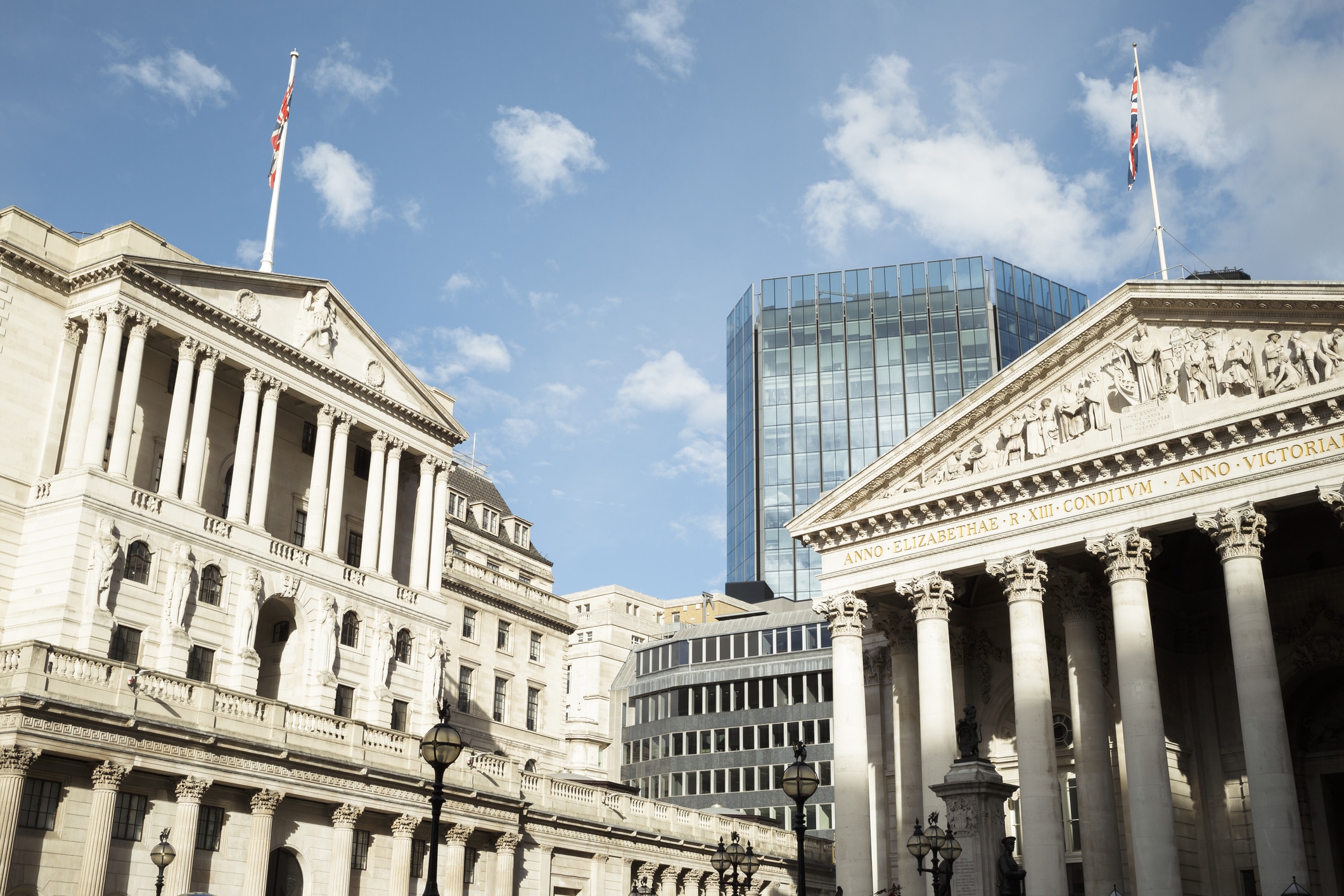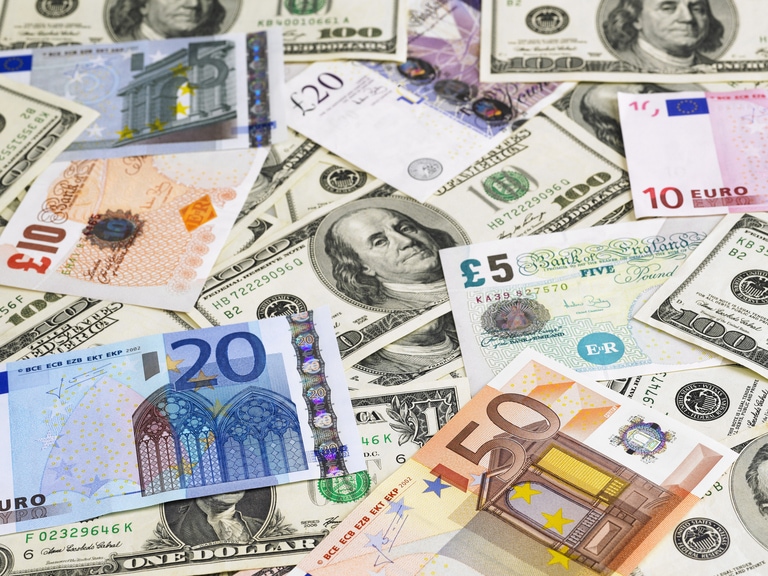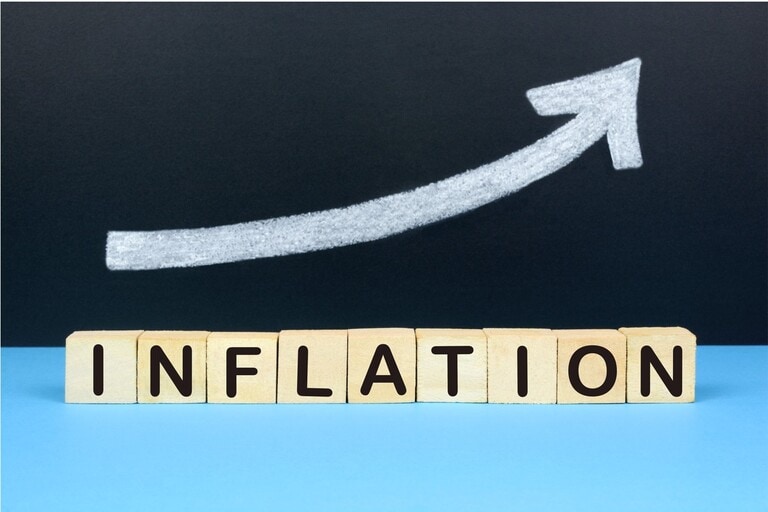We’re seeing further weakness in European indices on increasing worries that central banks will look through concerns over a slowdown in economic activity and prioritise the battle against inflation, treating a possible recession as a necessary side-effect of their willingness to push inflation back down to their 2% target.
Today we’ve seen the Swiss National Bank hike by 25bps, the Norges Bank and the Bank of England both hike by a bigger-than-expected 50bps.
Europe
All sectors have come under pressure with weakness across the board sector wise, with the biggest fallers coming from the likes of Tesco, Persimmon, Barclays, and Rightmove.
There’s very little to get excited about on the positive side of the ledger, although Ocado shares have continued to rise on the back of recent bid speculation that it might be the target of a bid from a US tech company.
Packaging company DS Smith shares fell yesterday on a negative read across from Austrian peer Mayr-Melnof. Today’s full year numbers have seen the shares fall further, despite profits before tax increasing by 75% to £661m, on the back of a 14% increase in revenues to £8.22bn. The ability to pass on higher prices despite lower parcel volumes was key in achieving this result. On the outlook management said trading was in line with expectations.
Premier Inn owner Whitbread initially got off to a strong start to the day pushing higher after reporting a 19% increase in total revenue for Q1. The UK has performed strongly with total sales growth of 16%, with accommodation seeing an 18% rise. The German market has continued to improve with a 124% increase in sales. On the outlook forward bookings for Q2 are well ahead of last year with management keeping full year guidance unchanged, however any initial share price gains couldn’t withstand the weight of market weakness that has characterised sentiment today, on the back of today’s sharp rise in UK interest rates.
US
US markets have opened lower, taking their cues from the weakness in European markets and the more aggressive central bank action from the Norges Bank and Bank of England. With Federal Reserve chairman Jay Powell also showing no sign of resiling from the hawkishness of last week’s statement of two more rate rises, the idea that rates might come down by year end is being pushed further into the realms of oblivion.
The latest weekly jobless claims numbers showed the labour market remained resilient after continuing claims fell sharply to 1759k from 1772k, which would suggest that the Fed still has room to hike more. That’s not good news for those who think that stock markets have room to go higher.
Teslashares have slipped back for the second day in succession after a downgrade from Morgan Stanley who said the shares are now fairly valued.
Darden Restaurants, owners of the ubiquitous Olive Garden chain has seen its shares slip back despite a solid set of full year numbers, With the shares close to record highs it could be argued that they are priced to perfection and while full year revenues came in at $10.49bn, right in line with its Q3 guidance upgrade the worry is about the future performance at a time when the US economy is slowing. For 2024 Darden said they expected to see full year sales of $11.5bn to $11.6bn and profits of $8.55c to $8.85c a share.
FX
The Norwegian Krone surged after the Norges Bank unexpectedly raised rates by 50bps, when 25bps was expected. The central bank also said it expected to move again in August as it looks to bring inflation back to target, however it has slipped back from its daily highs on the back of a stronger US dollar, as equity markets go risk-off.
The pound initially spiked higher after the Bank of England surprised the market by hiking interest rates by 50bps to 5% earlier today. The early gains didn’t last with the pound slipping back over concerns that the over aggressive nature of the central banks move might tip the UK economy into recession. There was little reaction in the UK gilt market with 2-year yields edging slightly higher, with the move already priced in, although as the day has progressed market expectations for future hikes are slowly being raised, with a terminal rate now close to 6% by year end.
The Australian dollar is also feeling the hit from the negative risk tone prevailing today.
With central banks increasingly intent on pushing down on inflation, even if it means forcing a recession, oil prices have reacted accordingly, sliding sharply from yesterday’s 1-week highs. Bigger then expected rate hikes from the Bank of England and Norges Bank and a Federal Reserve that has continued to push hawkish guidance is weighing on demand expectations.
Gold prices have remained under pressure over the past few days, with upward pressure on yields and a stronger US dollar contriving to keep the risk of further declines very much front of mind.
Volatility.
Shares in Intel slumped on Wednesday after the company updated the market with details of business restructuring plans that would see its semiconductor unit running its own P&L line. Despite the move being seen as having the potential to better control costs, the market was underwhelmed although downside was arguably exacerbated by a wider selloff for the sector. One day vol on Intel sat at 88.28% against 72.54% on the month.
Bitcoin has been on something of a tear of late, adding almost 15% since the start of the week. Applications from traditional finance companies to launch ETFs backed by the coin, along with a resulting short squeeze, have both been driving interest with the underlying passing back through the $30,000 mark. One day vol on BTC was 56.31% against 34.64% whilst activity on Bitcoin Cash was even more pronounced, printing 117.52% on the day versus 49.28% for the month.
Corn prices continued to plot a course higher, adding almost 4% during the session. That came in the wake of a US government report underlining the impact drier weather conditions would have on grain markets following this year’s harvest. One day vol printed 42.58% against 32.39% for the month.
And EUR/GBP was the most active currency trade for the day. Despite the prospect of more rate hikes from the Bank of England, that stubbornly high inflation rate is raising a flurry of questions as to where the UK economy goes next – and the answers aren’t looking all that attractive. One day vol on the cross sat at 7.05% against 5.07% on the month.






